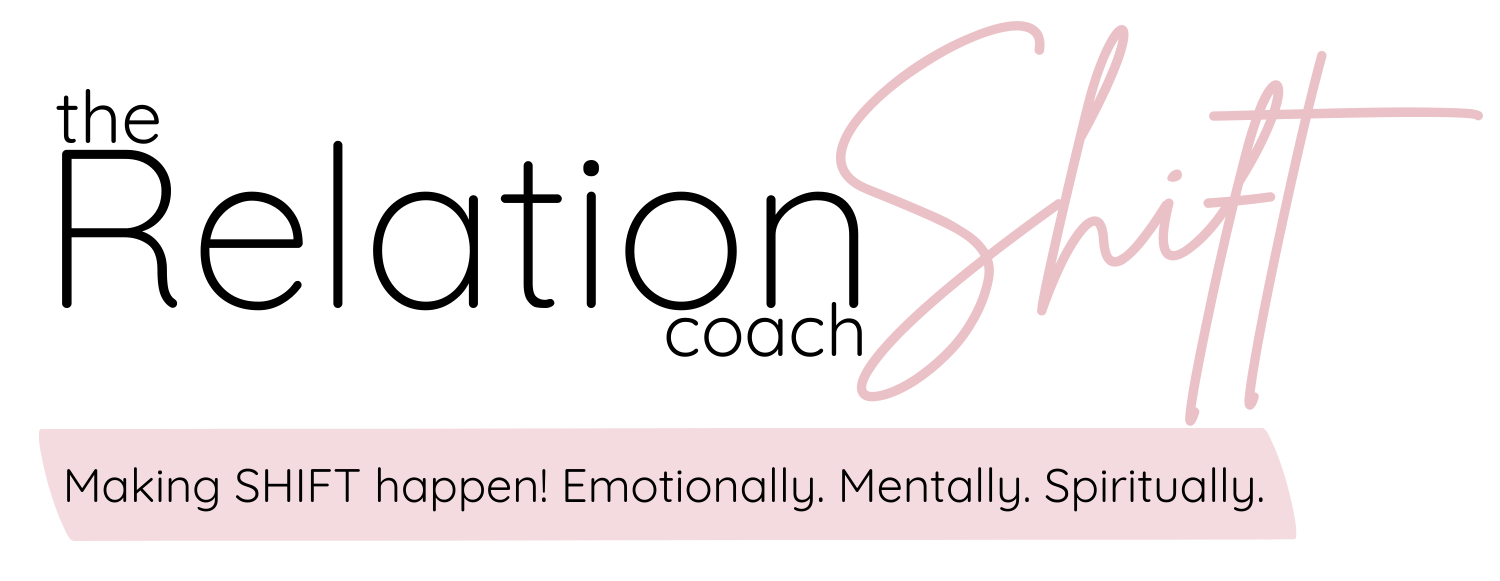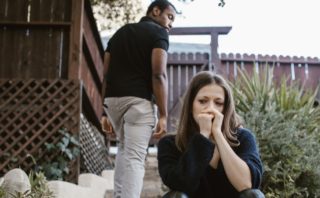Unfortunately, many people believe that abuse is only physical.
In fact, most forms of domestic abuse/violence are NOT physical. It’s those non-physical forms that can be the most dangerous because they’re all likely to lead to physical violence. And that first time may end up being the one and only time!
So when a woman is experiencing verbal, emotional, mental, financial, and spiritual abuse, we tend to dismiss it as being abuse.
That’s why one of the most common questions I’m asked is “How do I know it’s abuse?”
It can be a hard situation to understand. Although it may not yet be “physical” attacks, the intense fear, pain, and shame we feel are VERY REAL.
Our instincts are telling us we’re in danger, yet we often struggle with understanding why.
Here’s how I’ve described it…
Chances are you’re familiar with those two terrifying notes. Daaa dummm — daaa dummm — daaa dumm. …. It starts slowly and continues to build momentum and intensity as it invokes fear.
In 1975, Steven Spielberg directed the American thriller Jaws. And even after all these decades, that theme music, a simple combination of TWO notes, instills fear in most of us.

We didn’t even need to see the shark. Just seeing that intimidating fin, a dark shadow, a growing wave, or that orange floating barrel moving swiftly through the water created a feeling of terror.
Decades later, it continues to leave so many of us with a deep seeded fear of ever entering the ocean. It’s that same intense fear that I felt in my first marriage.
Although others couldn’t SEE the physical wounds, I was living in constant pain and fear!
Since most forms of domestic abuse aren’t physical, most often we don’t consider the relationship to be abusive.
It doesn’t reach that violent threshold we see in the movies. The black eyes, bloody injuries, bruises, and broken bones.
So we brush it off. Dismissing it as the natural ups and downs of a relationship.
But there is nothing natural about domestic abuse.
When I initially sought out a therapist, it was to help me become a better wife. It was obvious in my mind, that my husband was right – it was my fault for making him mad. Not doing as I was told, not having dinner ready on time, or even talking to others.
Fortunately, my therapist sensed there was something far deeper — and she was right.
After many questions and discussions, she gently explained to me that my husband was abusive. Initially, I thought she was off-her-rocker, and I emphatically denied it, explaining that he didn’t abuse me since he had never even hit me. Sure, he threatened to. And yes, I was terrified of him. But wasn’t that just me bringing out his bad temper?
My therapist assured me it was abuse and chances are it would escalate. That he could unexpectedly “Just snap”.
Even after my sessions with my therapist, I was extremely embarrassed and confused. Co-workers would ask me why I would panic when I had to work late. They could see the complete shift in my demeanor when he would call me at work — whether it was several times a day, or several times an hour. I would go from being happy to nervous and fearful.
People would ask if I was afraid of my husband because he hit or beat me. When I would tell them that I was very afraid of him but that he hadn’t beaten me, they often blamed me for “allowing him to behave that way”, commenting that I was weak – that they would never let a man treat them that way.
The shame and fear were deep and debilitating.
It wasn’t long after, that my therapist’s warnings came true. The abuse did escalate. The behaviors that lead to physical abuse began.
He would destroy or throw things at me. There were his threats to kill me if I left him or touched our joint bank account (where my pay was deposited). I would be reminded of his gun collection and his ability to use them.
Yet, I still felt I was to blame, justifying that his anger and threats were only directed at me… until he threw our 5-year-old son across his room!
It was then that I realized his behavior was now affecting our children. Just like the therapist had warned, my husband would snap at any time — often without warning or a reason.
A few months later, when he was away I grabbed our sons and left.
As I began my journey of healing and rebuilding my confidence — and life, many people began asking me more about the abuse. They’d ask for advice, how I knew when to leave, and share their own experiences.
They also wanted acknowledgment that they weren’t losing their mind. That even though their spouse hadn’t physically hurt them, they weren’t crazy for being afraid of them. I assured them that their fears were justified.

One evening as I was watching one of my favorite movies, Jaws, I began to notice a correlation between the movie and my marriage.
More specifically, the emotions and fears of an abusive marriage.
No, my ex didn’t swim around with a fin on his back, hum the tune or bite me — it was the many implied fears throughout this classic horror movie that reminded me of how I felt — every day!
For so many years, I had tried to explain what my marriage was like. People were confused by how someone could be so afraid of their spouse, even though they had never been physically hurt. Hey, even I was confused!
But after watching Jaws again (for about the 200th time), I realized the similarities. It was an analogy I began using to describe the emotions and fears in a way that others could relate to.
Just like how that famous theme from Jaws, daaa dummm — daaa dummm — daaa dumm — invokes a deep fear, so can the often subtle actions of an abusive partner.
Seeing the shark or having it attack isn’t necessary to instill fear. It is the impending threat that lurks below.
Instead of hearing the movie’s famous theme, seeing the huge shark fin rushing towards you, or the dark shadow lurking beneath you, we feel a similar dread and panic when we are yelled at, threatened, ridiculed, and even when we’re given the (deafening) silent treatment.
They are all pre-cursers to warn us something bad’s going to happen. That, a possible attack is looming.
Just like in the movie, there’s always that perceived danger in an abusive relationship. You can’t always see it, hear it or touch it — but you can certainly feel it. You know it’s there, lurking and waiting, ready to strike at any time.
Maybe it would take a small quick bite — or maybe unleash a full-blown, life-threatening attack. Whatever action they take, it’s guaranteed to inflict pain… emotionally, mentally, or physically.
Hopefully, this analogy can help provide some clarity and understanding of what it is like to be in an abusive relationship and why it’s so important that we recognize ALL forms of abuse.
That we realize that those experiencing any type of abuse are constantly facing a constant, deep, and dreaded fear and are at risk for a potentially devastating attack.
Helping others understand that their fear and pain are real. To have compassion, empathy, and patience for those who are struggling in an unhealthy or abusive relationship.
To end the victim blaming and shaming and instead… reach out and offer them a lifesaver!







Hi, this is a comment.
To get started with moderating, editing, and deleting comments, please visit the Comments screen in the dashboard.
Commenter avatars come from Gravatar.